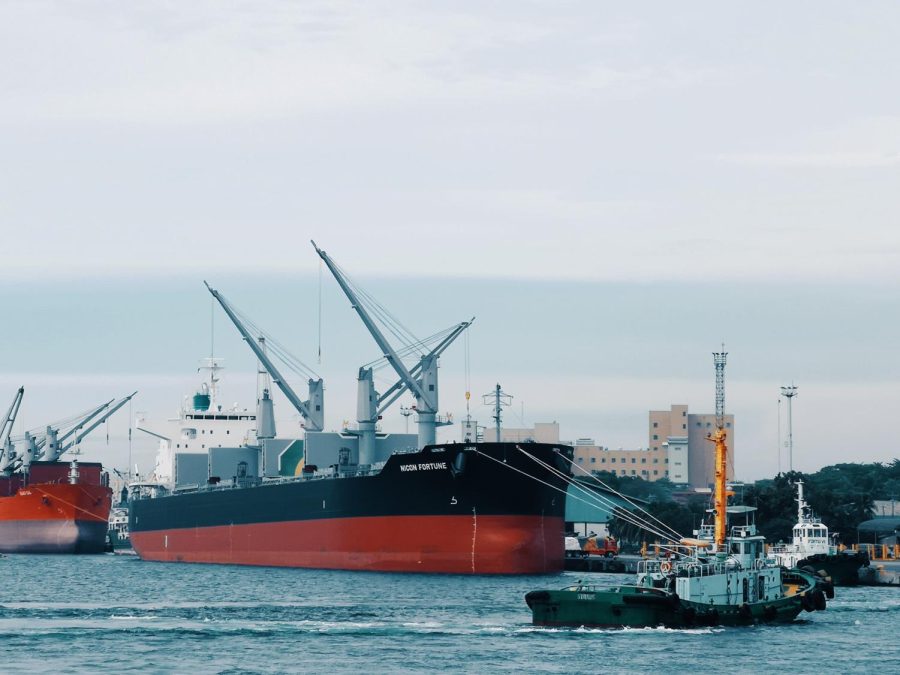Oil Spill Devastates Southern California’s Waters
A major oil spill of more than one hundred gallons was detected off the coast of Southern California on Oct. 2, 2021. The source of this abundant oil spill was an underwater pipeline. According to NPR (npr.org), a ship’s anchor may have hooked and dragged the underwater pipe causing the spill of the crude oil. The pipeline’s owner, Amplify, did not shut down operations after being alerted of this spill, worsening the event. The spill was even worse because it took a long time to notify the U.S Coast Guard’s National Response Center for oil spills. The pipeline was eventually shut down, but the damage had already been done.
Oil is composed of hydrocarbons, which are extremely toxic to organisms when ingested. It can be consumed accidentally, through the food one eats and through the air one breathes. Many birds migrate through this Southern California area every year, so scientists are keeping a close eye on the birds in the area. Crude oil can cause anything from hypothermia to poisoning in birds, as well as inhibit their flight, creating problems for migration. When eaten by predators, oil poisoning can pass through the food chain. Oil spills not only harm few species, but also have severe long-term effects on many organisms. For example, by killing marine algae such as phytoplankton, an entire food chain can be disrupted.
Animals such as otters rely on their fur to stay warm, so oil spills could cause hypothermia in fur mammals. These effects can cause the ecosystem to take years to fully recover. As for the Newport Beach oil spill, 10 birds were found washed ashore in the first five days after the spill was reported, and 25 were recovered and taken to wildlife centers for treatment. Many fish were also reportedly washed ashore.
Sophomore Amelia Doyle commented, “It is devastating to watch and read about the oil spills due to the severe destruction it has on the marine environment.”
The oil spill also had a tragic effect on the economy. First off, the oil spill caused popular beaches to close, such as Huntington Beach. Also, many businesses filed lawsuits in response to the spill to make up for the damages done to their income. According to the Los Angeles Times (latimes.com), people in the lobster industry have filed lawsuits against Amplify because the spill occurred during their busiest time.
Residents have filed lawsuits due to hazardous toxins. Many business owners and fishery owners fear losing money due to the beach closures. Residents also feared that the closure of beaches would inhibit tourism, causing an economic burden. Huntington Beach later opened its shorelines on Oct. 11, after water-testing results came back with an undetectable amount of oil toxins.
Cleanup crews have worked tirelessly, pulling 250,000 pounds of debris from shorelines. The crews deployed skimmers and floating barriers to inhibit the oil from spreading further. Booms – interconnected barriers spreading across the ocean – shovels, plastic bags, and industrial vacuums have also been used to clean up the spill. Specialized absorbents that sponge up oil but not water and in situ burning, which is lighting oil on fire, causing it to float to the surface, are two methods that have also been used. These methods have been honed over centuries to mitigate the damage of these environmental disasters.
Sophomores Caroline Larow and Nora Kane recently conducted a study on oil spills as part of the ArcGIS Challenge for Restoring Our Oceans through the LHS Science Research Program. The team researched bioremediation and natural remediation, the process of the environment repairing itself. This is usually the most effective route to cleaning up oil spills since microbes in the environment have adapted to be efficient at protecting the health of the environment.
When natural remediation is not sufficient, bioremediation can be used. Bioremediation describes the process of inserting certain chemicals or organisms into an environment to help break up the spilled oil, making natural remediation possible.
Kane commented, “I was shocked to see how disastrous oil spills can be and how common they are.” She believes the focus should primarily be on preventing oil spills, not working to clean up those that have already occurred. “There has to be more regulations in place when it comes to the transportation of oil across the ocean as well as more accountability for companies that cause oil spills,” Kane said.
“Seeing the disastrous effects of oil spills through my research was devastating,” Larow agreed. “The pictures of helpless animals with ruined habitats covered in oil really upset me.” Larow also agreed that prevention is key. “Ships carrying oil need the right safety precautions and equipment. The use of social media to educate the public on these spills and promote donations will continue to be a huge help too,” Larow added.



















